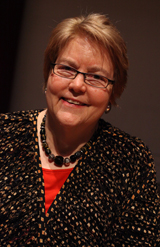A Quote by Samuel Butler
There is no permanent absolute unchangeable truth; what we should pursue is the most convenient arrangement of our ideas.
Quote Topics
Related Quotes
There is no such thing as absolute truth and absolute falsehood. The scientific mind should never recognise the perfect truth or the perfect falsehood of any supposed theory or observation. It should carefully weigh the chances of truth and error and grade each in its proper position along the line joining absolute truth and absolute error.
I believe that ideas such as absolute certitude, absolute exactness, final truth, etc. are figments of the imagination which should not be admissible in any field of science... This loosening of thinking seems to me to be the greatest blessing which modern science has given to us. For the belief in a single truth and in being the possessor thereof is the root cause of all evil in the world.
Marriage is very secure. It is safe. There is no growth in it. One is simply stuck. Marriage is a sexual arrangement; intimacy is a search for love. Marriage is a sort of prostitution, a permanent sort. One has got married to a woman or to a man - it is a permanent prostitution. The arrangement is economical, not psychological, not of the heart.
The revolutionary spirit is mighty convenient in this, that it frees one from all scruples as regards ideas. Its hard absolute optimism is repulsive to my mind by the menace of fanaticism and intolerance it contains. No doubt one should smile at these things; but, imperfect Esthete, I am no better Philosopher. All claim to special righteousness awakens in me that scorn and anger from which a philosophical mind should be free.
There is truth, my boy. But the doctrine you desire, absolute, perfect dogma that alone provides wisdom, does not exist. Nor should you long for a perfect doctrine, my friend. Rather, you should long for the perfection of yourself. The deity is within you, not in ideas and books. Truth is lived, not taught.
With kings, nations, and private individuals, the strongest assume to themselves rights over the weakest, and the same rule is followed by animals, by matter, by the elements, so that everything is performed in the universe by violence. And that order which we blame with some appearance of justice is the most universal, most absolute, most unchangeable, and most ancient law of nature.
Absolute knowledge is only possible when you know the Absolute Truth and to have the Absolute Truth you have to go to the Absolute Being within you which is your Spirit. So, it gives you the truth, it gives you the collective consciousness. The main thing is that you become extremely peaceful personality, you become peace, you emit peace.
The scientific value of truth is not, however, ultimate or absolute. It rests partly on practical, partly on aesthetic interests. As our ideas are gradually brought into conformity with the facts by the painful process of selection,-for intuition runs equally into truth and into error, and can settle nothing if not controlled by experience,-we gain vastly in our command over our environment. This is the fundamental value of natural science
It is not given to man to know the whole Truth. His duty lies in living up to the truth as he sees it, and in doing so, to resort to the purest means, i.e., to non-violence. God alone knows absolute truth. Therefore, I have often said, Truth is God. It follows that man, a finite being, cannot know absolute truth. Nobody in this world possesses absolute truth. This is God's attribute alone. Relative truth is all we know. Therefore, we can only follow the truth as we see it. Such pursuit of truth cannot lead anyone astray.
It takes a fearless, unflinching love and deep humility to accept the universe as it is. The most effective way he knew to accomplish that, the most powerful tool at his disposal, was the scientific method, which over time winnows out deception. It can't give you absolute truth because science is a permanent revolution, always subject to revision, but it can give you successive approximations of reality.
The full implications of feminism will evolve over time, as we organize, experiment, think, analyze, and revise our ideas and strategies in light of our experiences. No theory emerges in full detail overnight; the dominant theories of our day have expanded and changed over many decades. That it will take time should not discourage us. That we might fail to pursue our ideas - given the enormous need for them in society today - is unconscionable.







































